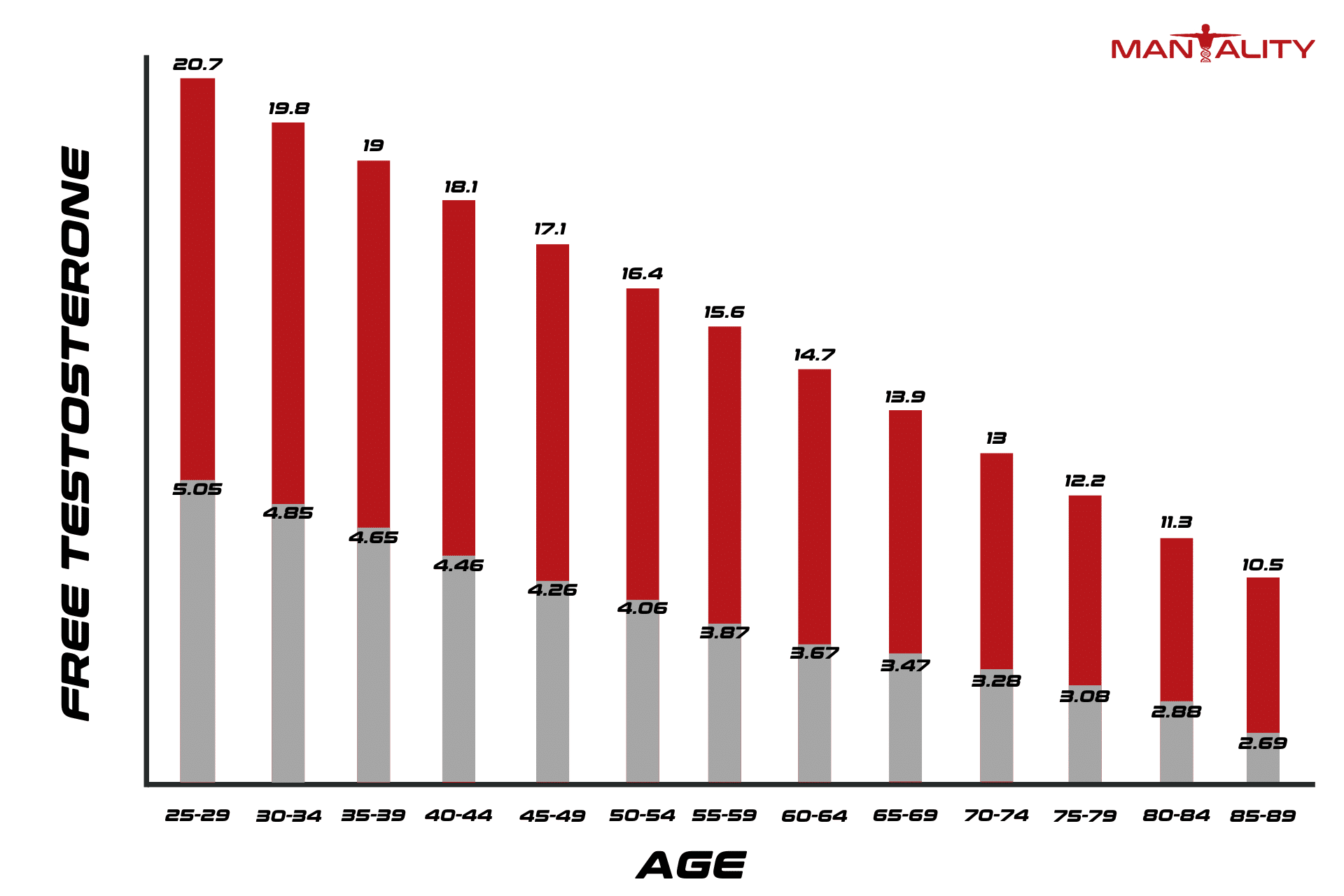Just look south. It’s not just difficulty in achieving an erection that’s a sign but struggling to maintain one as well. Then there’s the other tricky telltale signs that can just as easily be symptoms of depression or another illness.
You might even notice a number of bothersome symptoms like the loss of libido, loss of morning erections, erectile dysfunction, and even physical strength and muscle mass. You might feel excessively tired and fall asleep in the evenings. You could feel depressed and put on weight. When it goes really bad, your beard might not grow, and you could lose hair on your legs and get hot flashes.
So, what do you do? Talk with your doctor and really be honest about what you’re experiencing. In fact, overshare. Talk about the bedroom because often talking about sex drive and erections will ensure that hormonal tests are on the table in addition to other screenings.
Should you supplement testosterone?
Simply put, this is up to you and your healthcare provider to determine what’s best for you. However, we do want to mention that should you have a testosterone deficiency, patients who opt for supplemental treatment have great success! When you raise the testosterone level, symptoms can improve in variable stages. For example, your libido generally improves quickly; energy and erections may take a bit longer. Then losing weight and improving insulin resistance might take up to 12 months. Over time, your body will even out, and you’ll notice improvement across the board.
The best testosterone treatment for you will depend on your lifestyle. Low T treatments can vary, depending on how regularly they need to be administered. Someone with a good morning routine, for instance, would benefit from regular low-dose gels applied in the morning. For others, an injection that delivers testosterone over a longer period might work best. There are many options available. Contact one of our treatment coordinators at Mantality Health for your initial low T tests, then see what testosterone can do for you!




